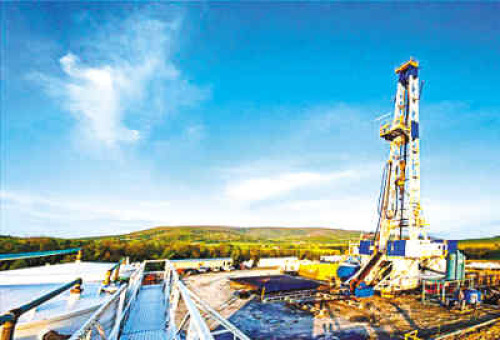
On February 20th, the three-day Sixth African Energy Conference concluded in Johannesburg, South Africa. The conference was jointly organized by the South African Energy Association and the World Energy Council. Focusing on the theme of "Energy for Africa's economic growth and development", representatives of government, industry, and business communities and experts and scholars from the energy sectors of various countries in the world will focus on decentralizing energy supply channels, skills training in the energy sector, political turmoil's impact on the energy industry, and exploring natural gas potentials. A number of issues were explored.
Delegates believe that there are a lot of undeveloped solar energy, wind energy, geothermal energy, and biomass energy in Africa, which provides objective conditions for the application and development of renewable energy in the region. At the same time, Africa needs to develop renewable energy and promote economic development, which in turn provides market conditions.
At present, thermal power generation accounts for about 51% of the total installed power generation capacity in sub-Saharan Africa. Considering the non-renewability of traditional energy sources and the pollution problems they bring, more and more African countries plan to use renewable energy as a supplement to their electricity supply. For example, the goal set by the Ghanaian government is that by 2020, renewable energy power generation will account for 10% of the total installed power generation capacity; the Ugandan government plans to increase this ratio to 61% by 2017; the South African government plans to reach 2030 years ago. The newly added 17,800 megawatts of renewable energy power generation capacity accounted for more than 40% of the total installed capacity of new power generation.
David Garrett, chief engineer of the Ministry of Renewable Energy of the Namibian State Power Company, told this reporter that at present most of the poor rural areas in Africa have no electricity. It is difficult to realize the large-scale extension of the national grid to rural areas from the cost point of view. The development of renewable energy sources will help meet the electricity demand of small-scale residents. However, the difficulties in project financing, the lack of operation and maintenance personnel, and inadequate policy support are all factors restricting the development of renewable energy in Africa.
The meeting also held a closed meeting specifically targeting the potential and prospects of shale gas in South Africa. According to the data released by the International Energy Agency in 2012, Africa’s technically exploitable shale gas reserves reach 30 trillion cubic meters. These reserves are mainly distributed in South Africa, Algeria, and Liberia, with South Africa accounting for 485 trillion cubic feet. 13.7 trillion cubic meters of shale gas reserves tops the list.
In recent years, South Africa’s economic growth rate has stayed at around 2%, far behind the government’s 6% target. As one of South Africa's economic pillars, the mining industry needs large-scale energy consumption, but its domestic oil and natural gas resources are limited. President Zuma of South Africa stated in his State of the Union address this year that shale gas development in the Karoo region will be a breakthrough in South Africa’s economic development. As more than 90% of South Africa's current electricity use comes from thermal power generation, the development and utilization of shale gas can effectively compensate for the power shortage in South Africa. According to a survey, the exploitation of 10% of shale gas reserves in South Africa will create an annual wealth of approximately 19.56 billion U.S. dollars and create an additional 700,000 jobs. According to the plan, the South African government will issue a permit for shale gas extraction in the first quarter of this year.
Ibrahim, chief executive of the South African Oil and Gas Alliance, told reporters that how to minimize the negative impact of mining activities on residents around Karoo will be one of the biggest challenges in the development of shale gas. The existing technology in South Africa cannot yet achieve unilateral extraction of shale gas. The supply of natural gas in the primary energy market accounts for only 2%. How to expand the market share of natural gas and develop the infrastructure supporting natural gas is the development of shale gas in South Africa. The subject to be faced.
Coupletech Co., Ltd manufactures, develops some kinds of Pockels Cell Q-switch driver and Pockels Cell Driver board, mini High Voltage Module for matching our pockels cell, Q-swithes. The voltage is up to 10KV, the repetition rate is up to 200kHz and the rising time/falling time is <10ns. The application is from Q-switching to more advanced pulse picking, pulse slicing and regenerative amplifier control.
Coupletech is seeking small volume, compact design, high laser power, high reliability for our electrooptics, and keeping satisfact quality as always. We supply Standard products, e.g. PCD20, PCD-C, and PCD-BS and customized products.
Pockels Cell Driver
Driver Board,High Voltage Power Supplies,Pockels Cell,Pockels Cell Modulator,Laser electronics,Q-switches,Pulse Picker
Coupletech Co., Ltd. , https://www.coupletech.com
